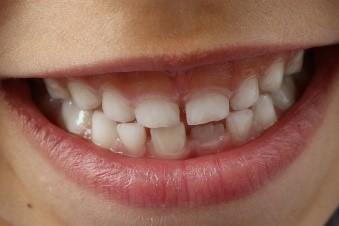
The Basics of Baby Teeth: What Every Parent Should Know
As a parent, witnessing your baby’s first toothy grin is a cherished milestone. However, navigating the world of baby teeth can sometime be a daunting task. Understanding the importance of these tiny pearly whites and knowing what to look for as they emerge is crucial for your child’s dental health. In this post, we’ll dive into the basics of baby teeth and provide insights on what to expect during this developmental stage.
Why Baby Teeth Matter
Baby teeth, also known as primary teeth or deciduous teeth, play a vital role in your child’s overall health and development. Here’s why they matter:
1. Facilitating Proper Nutrition: Baby teeth aid in the chewing process, allowing infants to properly break down food for digestion. This sets the stage for healthy eating habits and proper nutrition.
2. Speech Development: Baby teeth are essential for speech development. They help children articulate sounds and form words correctly, laying the foundation for clear communication.
3. Guiding Permanent Teeth: Baby teeth act as a placeholder for permanent teeth. They help guide the permanent teeth into their proper positions, preventing alignment issues later on.
4. Boosting Confidence: A healthy smile can boost a child’s confidence and self-esteem, promoting positive social interactions and overall well-being.
What to Look For
As your baby’s teeth begin to emerge, here are some key things to keep in mind
1. Timing: Most babies get their first tooth between 4 and 7 months, although the timing can vary. Teeth typically erupt in a specific order, starting with the lower central incisors followed by the upper central incisors, lateral incisors, first molars, canines, and finally, second molars.
2. Symptoms of teething: Teething can be a challenging time for both babies and parents. Look out for signs such as excessive drooling, irritability, swollen gums, and a desire to chew on objects.
3. Proper Oral Hygiene: Even before teeth emerge, it’s essential to establish good oral hygiene habits. Gently clean your baby’s gums with a sift, damp cloth after feedings, and transition to a soft toothbrush once teeth appear.
4. Regular Dental Check-ups: Schedule your child’s first dental appointment by their first birthday or within six months of their first tooth erupting if you notice any problems. At our office we encourage you to bring your toddlers in for “chair rides” to get them familiar and comfortable with our office and staff and we can often spot any problems at that time. Regular dental check-ups are then crucial for monitoring oral health and addressing any concerns early on.
5. Health Habits: Encourage healthy habits such as limiting sugary snacks and drinks, and promoting a balanced diet rich in fruits, vegetables, and calcium-rich foods. Don’t let infants sleep with bottles that contain anything that may cause tooth decay.
Conclusion
Baby teeth may be small, but they play a significant role in your child’s development. By understanding the importance of baby teeth and knowing what to look for as they emerge, you can help set the stage for a lifetime of good oral health. Remember to prioritize regular dental check-ups and install healthy habits from an early age. Your child’s smile will thank you for it!
